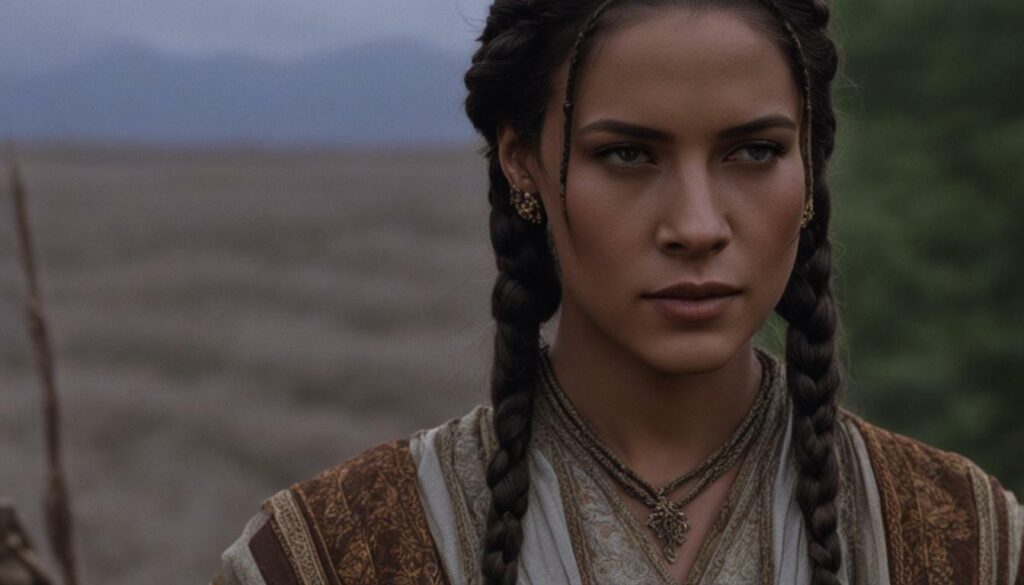
Dutch braids are a popular hairstyle, but have you ever wondered if they actually come from the Netherlands? Contrary to what their name suggests, Dutch braids do not have their origins in the Netherlands. They were actually invented in Africa as a practical way to protect the hair and scalp from the sun’s harsh rays.
The Dutch were the first outside culture to incorporate Dutch braids into their everyday lives, hence the name. However, it’s important to note that Dutch braids are not exclusive to the Dutch or their culture. They share similarities with French braids, another hairstyle that does not originate from the countries it is named after.
Dutch braids, unlike other hairstyles such as dreadlocks that have cultural significance, do not hold any important cultural meaning. Their popularity stems from their aesthetic appeal and practicality rather than any specific cultural association. As a result, wearing Dutch braids or French braids is not considered cultural appropriation, as these styles have a long history and are not specific to any one culture.
Key Takeaways:
- Dutch braids were invented in Africa as a way to protect the hair and scalp from the sun.
- The Dutch were the first outside culture to incorporate Dutch braids into their everyday lives.
- Dutch braids, similar to French braids, do not originate from the countries they are named after.
- Dutch braids do not hold any important cultural significance, unlike other hairstyles like dreadlocks.
- Wearing Dutch braids or French braids is not considered cultural appropriation.
The History and Origin of Dutch Braids
Contrary to what their name suggests, Dutch braids actually do not originate from the Netherlands. These stylish and versatile braids were actually invented in Africa as a practical way to protect the hair and scalp from the intense sun. Over time, they made their way to Europe and were eventually adopted by the Dutch, who were the first outside culture to fully embrace this braiding technique. This is why they are commonly referred to as Dutch braids.
Similar to French braids, which also don’t have their origins in France, Dutch braids have become a popular hairstyle trend worldwide. However, it is important to note that Dutch braids do not hold any significant cultural significance, unlike other hairstyles such as dreadlocks, which have deep cultural roots. Dutch braids gained their popularity due to their attractiveness and practicality, rather than any specific cultural association.
“Dutch braids have become a staple in the hairstyling world because of their versatility and beauty. They can be worn on various occasions, from casual outings to formal events. Their intricate pattern adds an elegant touch to any look, and their ability to keep the hair neat and secure makes them a favorite choice for many individuals.”
It is worth mentioning that wearing Dutch braids or French braids is not considered cultural appropriation, as these hairstyles have a long history and are not specific to any one culture. They have transcended borders and have been embraced by people from different backgrounds and ethnicities.

| Pros of Dutch Braids | Cons of Dutch Braids |
|---|---|
| Attractive and stylish | Require some practice to master |
| Can be worn on different occasions | May cause tension if braids are too tight |
| Help protect the hair and scalp | Require regular maintenance |
In conclusion, Dutch braids may have the word “Dutch” in their name, but their origin lies in Africa. They have gained popularity worldwide due to their aesthetic appeal and practicality, rather than any cultural significance. So, if you’re looking for a stunning hairstyle to try, Dutch braids are a great choice!
Conclusion
Dutch braids may not have Dutch origins, but they have become a beloved hairstyle around the world for their beauty and practicality. Contrary to popular belief, Dutch braids were actually invented in Africa as a way to protect the hair and scalp from the sun. The term “Dutch” came about because the Dutch were the first outside culture to adopt this braiding technique and incorporate it into their everyday lives.
It’s important to note that Dutch braids are similar to French braids, another hairstyle that doesn’t originate from the countries it is named after. Unlike certain hairstyles like dreadlocks, Dutch braids do not hold any important cultural significance. They have gained popularity globally simply because they are an attractive and functional hairstyle.
It’s worth mentioning that wearing Dutch braids or French braids is not considered cultural appropriation, as these styles have a long history and are not specific to any one culture. They have been widely embraced by people of diverse backgrounds and are cherished for their versatility and elegance.
In conclusion, Dutch braids may not be Dutch in origin, but their universal appeal and timeless beauty continue to make them a favorite choice among individuals seeking a stylish and practical hairstyle. So, whether you’re rocking Dutch braids for a casual day out or a special occasion, you can confidently embrace this hairstyle knowing that it transcends cultural boundaries and has been enjoyed by people worldwide for centuries.
FAQ
Are Dutch braids actually from the Netherlands?
No, Dutch braids are not actually from the Netherlands. They were invented in Africa as a way to protect the hair and scalp from the sun.
Why are they called Dutch braids if they are not from the Netherlands?
The Dutch were the first outside culture to incorporate the Dutch braid into their everyday lives, which is why they are called Dutch braids. However, the braiding technique itself originated in Africa.
Do Dutch braids hold any cultural significance?
No, Dutch braids do not hold any important cultural significance, unlike other hairstyles such as dreadlocks that have cultural significance.
Why have Dutch braids gained popularity around the world?
Dutch braids have gained popularity around the world because they are an attractive and practical hairstyle, not because they are culturally significant. Many people find Dutch braids to be a versatile and stylish option for various occasions.
Is wearing Dutch braids considered cultural appropriation?
No, wearing Dutch braids is not considered cultural appropriation. These styles have a long history and are not specific to any one culture. They have been embraced by people from diverse backgrounds and are seen as a fashionable hairstyle choice.






